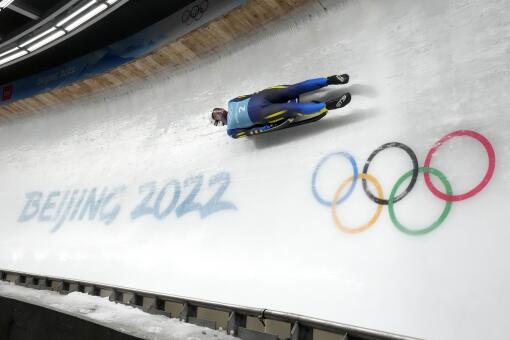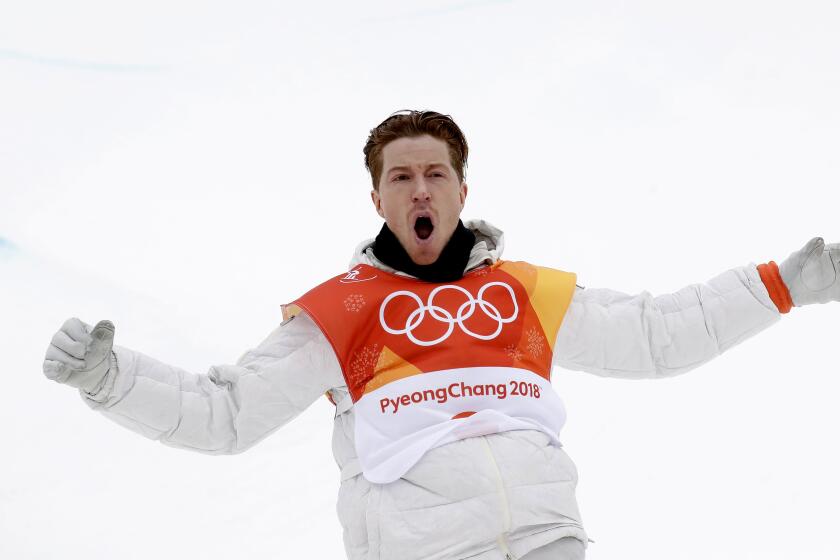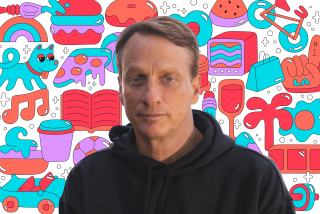Shaun White finishes fourth as his prolific Olympic career comes to a close
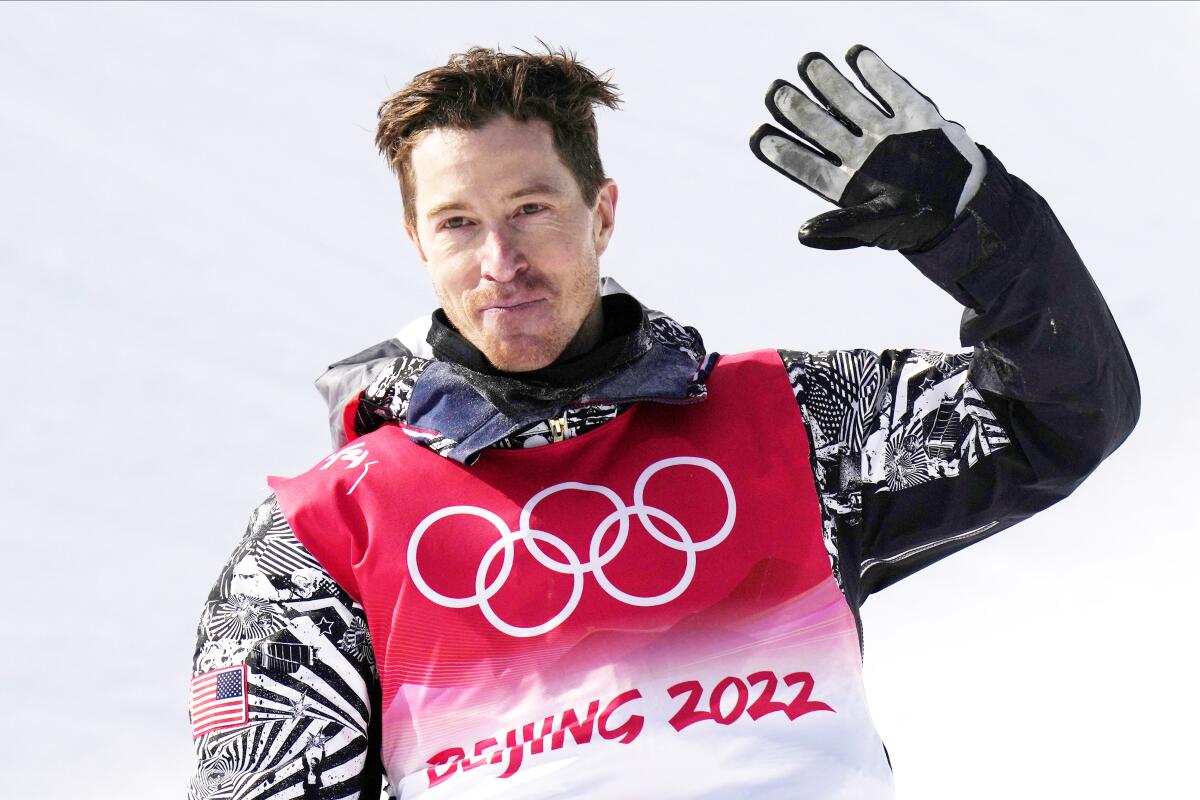
ZHANGJIAKOU, China — Shaun White lifted his helmet off, the red hair that made him famous much shorter than it once was. He waved his black helmet to the crowd, lifted his hand and nodded his head.
Awaiting a score he knew wouldn’t change the standings, White wiped a tear from the corner of his eye as fans cheered.
This is how it ends.
The snowboard legend finished fourth in the snowboarding halfpipe final on Friday at Genting Snow Park in the last competition of his storied career. The 35-year-old, three-time gold medalist dropped in for his final run in fourth place with a chance to overtake Switzerland’s Jan Scherrer for the bronze medal.
Instead, White fell on his second hit. He slid on his back to the flatbottom thinking about how this wasn’t how he wanted it to go.
“You don’t always get what you want,” an emotional White said, “but I have to be thankful for everything that I do have and what I have gotten over my career. And I gotta be happy for these guys.”
Japanese star Ayumu Hirano landed historic triple corks in each of his three runs and won his first Olympic gold medal after settling for silver in the past two Games. When simply landing a triple cork in his second score of 91.75 didn’t surpass Australian Scotty James’ 92.5, Hirano pushed the triple-flipping, quadruple-twisting trick even higher to overtake James on the final attempt of the day.
After stomping the winning run that earned 96 points, Hirano modestly raised his mittened hand. James, who won bronze in Pyeongchang, took silver.
American Taylor Gold finished fifth after falling on his last two runs while Chase Josey placed seventh.
White got through his first two runs cleanly, including an 85-point attempt in the second round that vaulted him into second place. The efforts sent a message that even amid the wave of nostalgia surrounding his final contest, White was, indeed, the defending gold medalist.
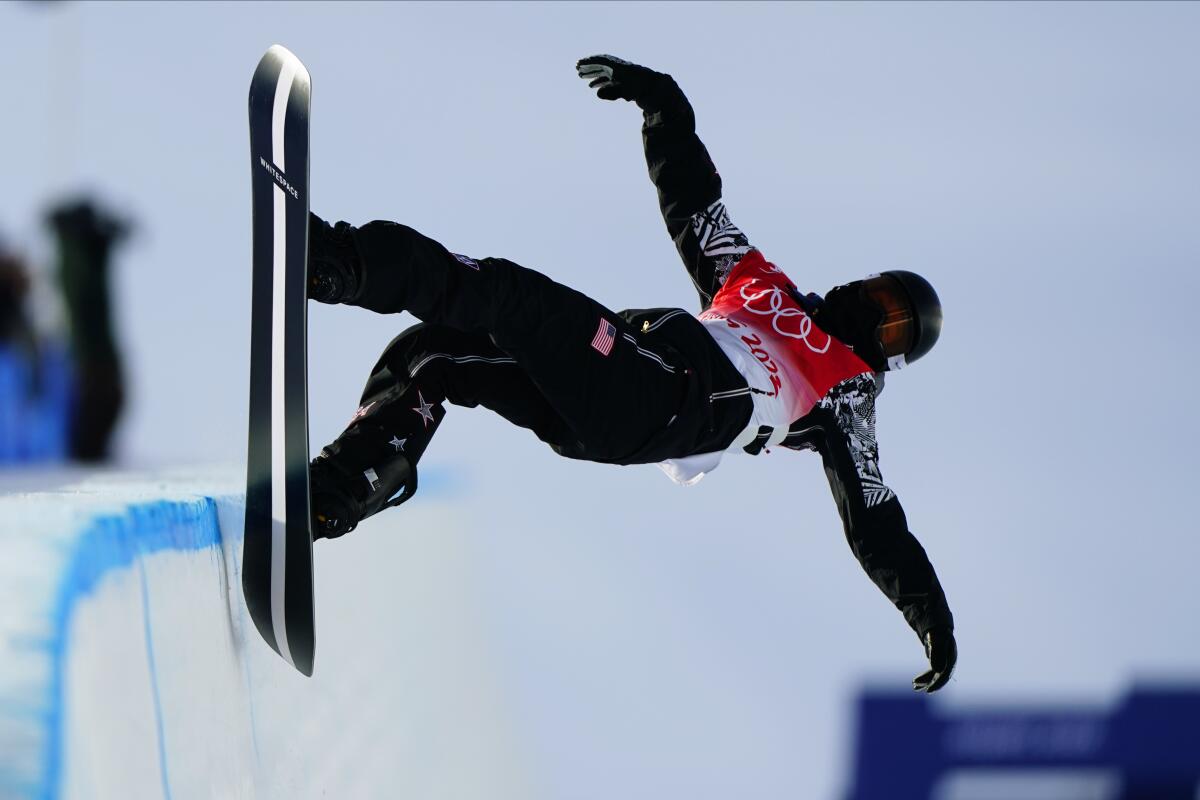
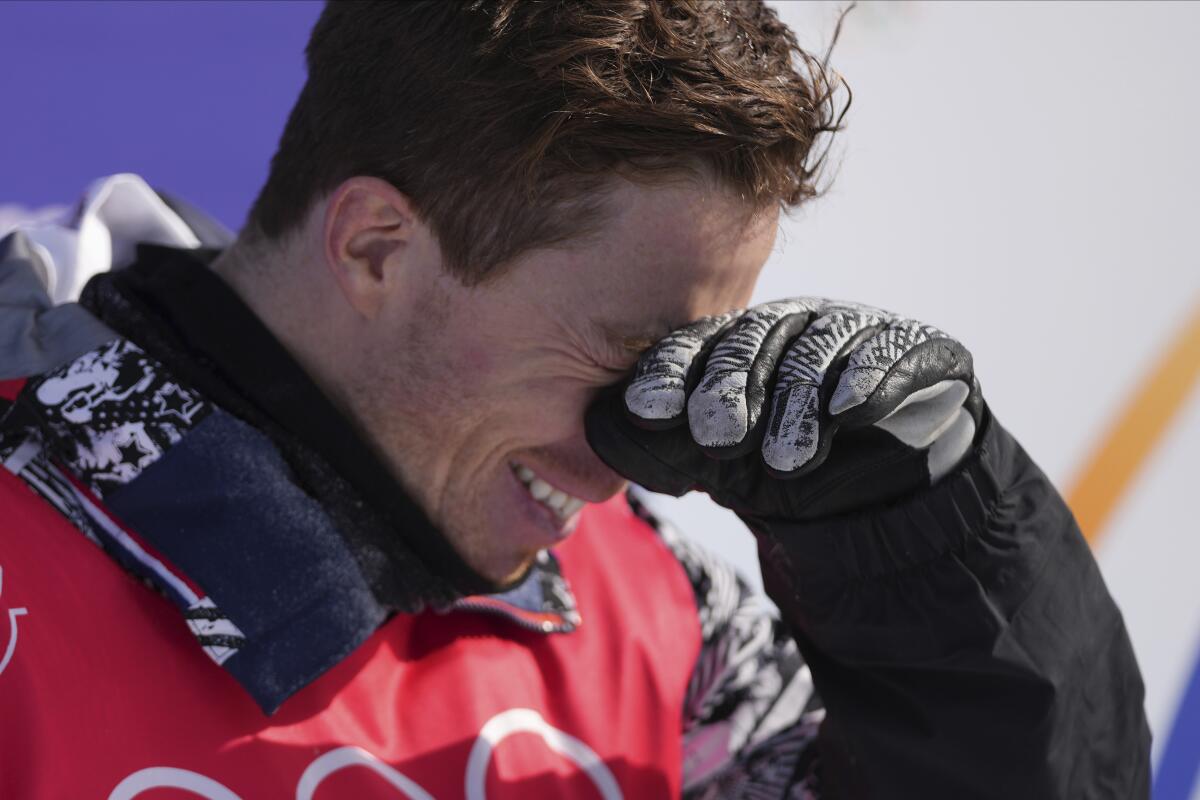
That fact felt overshadowed by his impending retirement. When he decided that this would be the end, the pressure to win or pursue the 2026 Games in Milan evaporated. It turned into “an appreciation tour.”
“I could honestly say I’m so proud of what I’ve done,” he said after Wednesday’s qualification rounds. “And I can’t wait to see what the next generation does with this sport. Look at where it’s come.”
White remembered when they dug halfpipes with shovels. Now on what Josey called “the best pipe in the world,” Hirano landed the first triple corks in Olympic competition. White thinks quads are within reason.
“Everybody was asking me what my legacy in this sport has been. And you’re watching it,” White said. “They’ve been on my heels every step of the way and to see them finally surpass me, is I think deep down what I always wanted: to be beaten. … That triple was incredible. It was the biggest air of the day. I know [Hirano] wanted it. It’s his time.”
Snowboarding’s first crossover star looks to go out with a medal in his last races before retiring. His first Olympics was in 2006 in Torino.
While he never landed a triple cork in competition, White was one of the first to attempt the daring triple-flip trick. Teammate Lucas Foster credited White for putting the sport on “the train that it’s on.”
“He’s given a lot to this sport,” Foster said. “And it’ll be interesting to see which direction it goes in.”
In a post-White era, snowboarding is at a crossroads. While bigger and bigger tricks are quick ways to impress judges, Foster and Gold are envisioning a future where they can bring style back. Instead of just adding another twist or flip, riders want to get creative with tricks that might not look as impressive as triples but are just as difficult.
“[The style] of halfpipe is what drew me to it initially and I think that’s super valuable for people watching who want to get into snowboarding, who want to get into halfpipe,” said Gold, who finished in the top half of the final despite maxing out his spins at 1260 compared to leaders who threw 1440s. “When [style is] scored well, it makes other riders want to add it to their runs as well so it kind of has this effect of creating more style in the whole event.”
There’s never a guarantee how judges will value creativity against pure difficulty each day, said Gold, who came back to snowboarding in 2020 after a four-year recovery from a broken kneecap.
The 28-year-old jumped to an early lead, relying on two clean 1260s to vault him into first place. He stayed there when the top three qualifiers — Ruka Hirano, James and Ayumu Hirano — fell on their first runs, but Gold, who fell on his final two runs, recognized he had no chance with the way Ayumu Hirano and James were riding.
“It’ll still be viable,” Gold said of stylish riding like his, “but at the end of the day, you see someone do a triple cork 20 feet out, at the moment, it’s hard to match that.”
As the era of the triple cork opened, White’s tenure at the top of the sport ended. In a final walk through a maze of media, White shared tales about getting his first snowboard and how his mom would have been happy with just one gold medal. The three-time Olympic champion was sad his family couldn’t be in attendance Friday but added he was ready to be a son, uncle and friend to them again.
With his job as a competitive snowboarder done, White quickly started his role as a businessman pitching his company Whitespace. The name is a play on his own name, but also refers to the blank canvas that lies ahead. His voice catching with emotion suddenly, White said he will surrender to the unknown future.
Then he dropped to a knee, bowed his head and sobbed.
More to Read
Go beyond the scoreboard
Get the latest on L.A.'s teams in the daily Sports Report newsletter.
You may occasionally receive promotional content from the Los Angeles Times.

